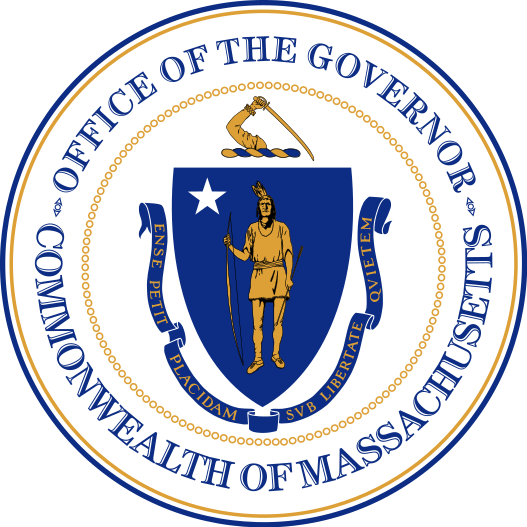- Governor Maura Healey and Lt. Governor Kim Driscoll
Media Contact
Karissa Hand, Press Secretary
Boston — Today, Governor Maura Healey filed a supplemental budget that will enable Massachusetts to close out Fiscal Year 2023 in balance, pay for new collective bargaining agreements and continue to provide safe shelter and support services for thousands of families experiencing homelessness.
The budget allocates $2.15 billion gross / $833.3 million net to cover spending deficiencies and continue with a MassHealth payment strategy that has enabled Massachusetts to spread the impact of the loss of enhanced COVID-19 reimbursements across fiscal years. In total, $2.11 billion gross / $798.8 million net will be dedicated to MassHealth.
“Massachusetts remains in a strong financial position to make these investments and continue to pursue priorities such as meaningful tax relief that will make Massachusetts more affordable, equitable and competitive,” said Governor Healey. “This bill will allow us to turn the page on Fiscal Year 2023, begin to implement the new fiscal year budget we secured in partnership with the Legislature, and continue to make critical investments in our people and institutions.”
In addition to funds necessary to cover Fiscal Year 2023 spending, Governor Healey is proposing to use $250 million in one-time resources from the Transitional Escrow Fund to cover the ongoing cost of providing safe, temporary shelter to thousands of families in need. Governor Healey earlier this summer declared a state of emergency due to rapidly rising numbers of families arriving in Massachusetts in need of shelter and services and a severe lack of shelter availability in the state. The state’s Emergency Assistance program is for families with children or pregnant women who are experiencing homelessness, including newly arrived families and local families. The administration continues to work with its state and federal partners to find families permanent housing, expedite access to work permits, request federal funding and identify other potential solutions. However, the growing demand for shelter continues to put pressure on the system’s capacity to meet the needs of families seeking assistance, as well as municipalities that have welcomed students to their classrooms.
“Our emergency shelter system has been rapidly expanding in recent months to ensure that families in need have a safe place to stay,” said Lieutenant Governor Kim Driscoll. “Our administration remains committed to providing these families with safe and temporary shelter and the services they need to remain healthy and find a permanent home. This funding will enable us to meet that need as it stands today, as well as continue to support the municipalities that are sheltering families in their communities.”
The supplemental budget also allocates:
-
$16 million for a reserve to cover costs accrued by sheriffs
-
$15 million to support Section 35 substance abuse treatment at sheriff facilities
-
$11 million for shared services at the Department of Unemployment Assistance
-
$8.8 million for the Department of Elementary and Secondary Education to extend for one year the contract for the administration of the MCAS exam
-
$500,000 for Commission on Lesbian, Gay, Bisexual, Transgender, Queer and Questioning Youth operations.
-
$185,000 for military death benefits and early fiscal year National Guard activations
-
$27,564 for Group Insurance Commission dental and vision benefits for a unit within the Trial Court
In addition to the funding necessary for the Commonwealth to close the books for Fiscal Year 2023, the budget filed today would make a number of corrections to policies enacted in recent legislation, including the Fiscal Year 2024 budget signed last month. This includes a technical change to the universal free school meals policy made permanent as part of the Fiscal Year 2024 budget that would ensure all students at almost all public schools across Massachusetts have access to free breakfast and lunch, as intended by the Legislature and this administration.
Additional sections would allow municipalities impacted in July by natural disasters like flooding to pay back the cost of those emergencies over multiple years; simplify the implementation of a tax credit for small businesses who hire members of the National Guard; and facilitate the elimination of copays for MassHealth members. The bill also updates the quorum requirements for the MBTA board of directors to reflect the addition of new members; corrects the transfer mechanism for the Cannabis Social Equity Trust Fund; expands eligibility for CHIPS matching funds; and sunset the daily COVID-19 reporting requirements put in place for the Department of Public Health during the pandemic.
“We have worked hard over the past eight months with our partners in the House and Senate to carefully manage finances and put Massachusetts in the best position to continue to make impactful investments and reforms that will move our economy forward,” said Secretary of Administration and Finance Matthew J. Gorzkowicz. “We’re hopeful that the Legislature can take this supplemental budget up quickly to close the books on Fiscal Year 2023.”
A separate $200 million reserve created by this bill would be used to fund new collective bargaining agreements reached between the administration and many of the state’s public employee unions. Governor Healey and Lieutenant Governor Driscoll remain committed to forging a strong partnership with labor organizations, whose members are on the front lines of delivering the services on which Massachusetts residents depend.
###
